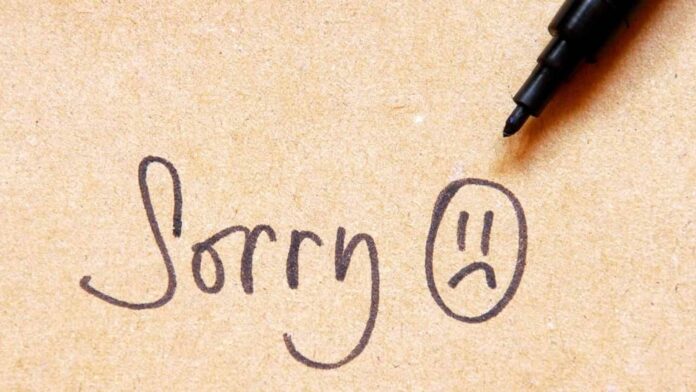National Apology Day 2024: Every year on February 13, Australia celebrates National Apology Day. It is a national holiday honoring the tens of thousands of Aboriginal children who were taken from their families by force during Australia’s assimilation era, as well as the first-ever national apology made by Prime Minister Kevin Rudd in 2008 to launch the federal government’s rehabilitation, justice, and reconciliation agenda for Indigenous Aborigines and Torres Strait Islanders.
History Of National Apology Day
National Apology Day commemorates the formal apology given to traumatized children and families in Australia during the 20th century for forced child removal and assimilation practices. This yearly observance, while partially connected, is not to be confused with Australia’s National Sorry Day, also known as the National Day of Healing, which is celebrated on May 26 every year since 1998.
On National Sorry Day, the Bringing Them Home report was first introduced in the Australian Parliament. The Human Rights and Equal Opportunity Commission’s 1995 investigation into government policies and practices from 1910 to the 1970s—which forcibly separated many Aboriginal and Torres Strait Islander children from their families to assimilate them into white Australian culture—was the source of the report.
The impacted kids, referred to as the “Stolen Generations,” are thought to have made up 10% to 33% of all Indigenous children between 1910 and the 1970s. They endured severe maltreatment and trauma because they were forced to reject their Indigenous ancestry and live in difficult circumstances. Many victims are still processing the trauma they endured to this day. Actionable suggestions for redressing historical wrongs were also included in the “Bringing Them Home” report. These included the federal and state governments formally apologizing and providing funds for the victims’ rehabilitation.
On February 13, 2008, Kevin Rudd, the prime minister who succeeded John Howard and who at the time declined to apologize, made the federal government’s official public apology for the policies that caused the Stolen Generations pain, suffering, and loss. The apology was unanimously approved as a motion by both chambers of parliament, and many Australians responded with tears and applause when they heard it spoken in public.
National Sorry Day 2023: Date, History, Facts about Indigenous Australians
National Apology Day: A Guide
Study up on the background.
Investigate the horrifying accounts of the Indigenous children in Australia who, between 1910 and the 1970s, were taken from their homes by force and placed in foster homes and other institutions where they were forced to live with strangers. You’ll be in a position to sympathize with the victims and feel their suffering.
Honor notable Indigenous Australians
Many successful Aboriginal people today work in a variety of industries, including academia, athletics, entertainment, and the arts. They have made significant contributions to Australia’s growth. This day provides a great chance to examine their accomplishments and efforts, spread the word about them, and educate people about the creativity of these Indigenous Australians.
Speak out against laws that discriminate.
Governments continue to enact laws and policies that violate the fundamental human rights of a large number of marginalized people throughout the world. To create a more equitable society for all, National Apology Day is a fantastic chance to spread awareness of and opposition to many of these harmful policies.
Five fascinating facts about Australian Indigenous people
- The Aboriginal and Torres Strait Islander peoples are said to have originated between 50,000 and 65,000 years ago.
- In pre-colonial Australia, all Indigenous people spoke around 250 languages and 600 dialects; today, that number has decreased dramatically to just 20 languages.
- About 400 words from different Indigenous languages have been incorporated into Australian English; the majority are nouns like kangaroo, boomerang, wombat, kookaburra, koala, and barramundi.
- After declining throughout colonialism, the Indigenous population of Australia began to rebound in the early 1900s, and by 2011, about 800,000 Indigenous people were living there, or roughly 3.3% of the nation’s total population.
- Compared to the non-First Nations population, the age profile of Indigenous peoples is significantly younger, with almost 53% of those under 25.
National Sorry Charlie Day 2023: Date, History, Facts, Activities
Reasons Why National Apology Day Matter
It admits prejudice.
For an extended period, numerous living survivors of the biased child removal regulations, along with other impacted families, demanded recognition, regret, and compensation from the government, only to be turned down.
It draws attention to the suffering of the injured.
The study Bringing Them Home highlighted the unfair treatment of Indigenous families who were unjustly subject to discriminatory laws and policies.
It looks for peacemaking.
Even though the report’s recommendation to issue a national apology took nearly ten years to materialize, the apology signaled the government’s willingness to seek reconciliation and make amends.
NATIONAL APOLOGY DAY DATES
| Year | Date | Day |
|---|---|---|
| 2024 | February 13 | Tuesday |
| 2025 | February 13 | Thursday |
| 2026 | February 13 | Friday |
| 2027 | February 13 | Saturday |
| 2028 | February 13 | Sunday |




